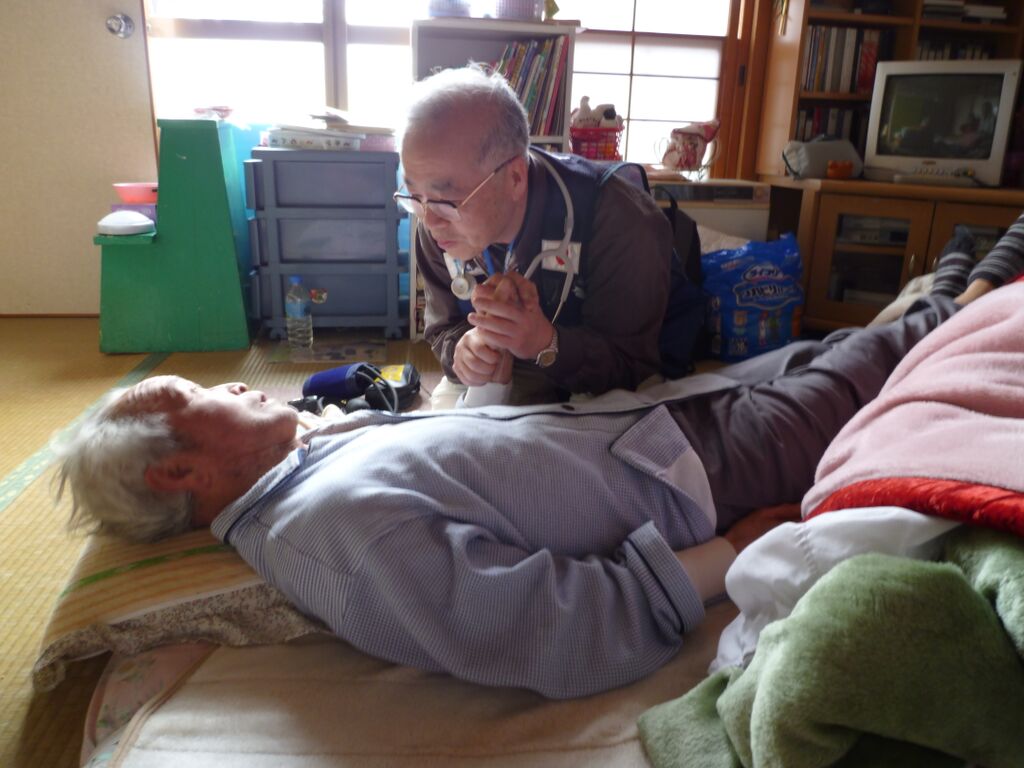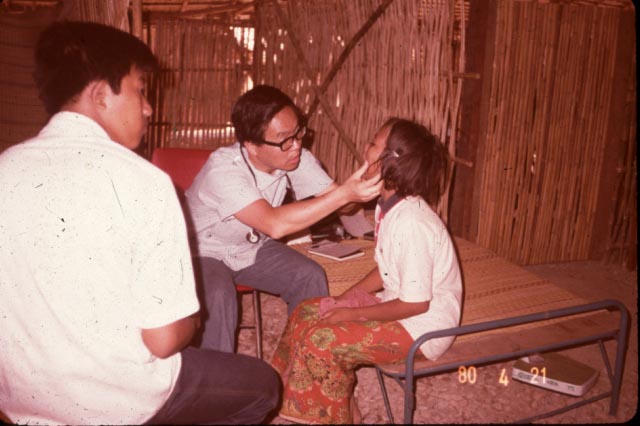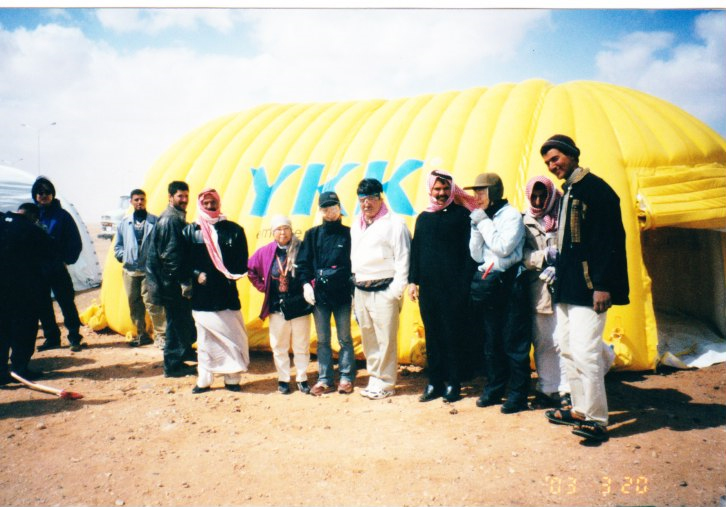| Takashi Ukai (The first chairman of HuMA/Adviser of Hyogo Emergency Medical Center) Interview that focusing on people participating in HuMA activities. The 1st interview is about the first chairman [current adviser] of HuMA, Takashi Ukai, who founded HuMA in 2002 and has been showing the necessities of humanitarian assistance in disaster relief through his own actions since then. As of today, he is still working at the foremost line.  In the house of the victim from Great East Japan Earthquake in 2011 In the house of the victim from Great East Japan Earthquake in 2011 Assistance with people’s warm hands is needed by in area struck by disasters “Japan lagged behind in humanitarian assistance in disaster relief,” I thought around 40 years ago. In fall 1979, the news of the miserable condition of refugees from the Cambodian civil war was broadcasted for consecutive days in Japan. With a photograph of a skinny mother holding and trying to breast-feed a tiny baby, whose face was covered with many flies, the media kept criticizing, “Japan is only providing financial assistance and isn’t sending people. There is no Japanese assisting on site.” Because of that public voice, the government decided to form a medical team and dispatched it to Cambodia immediately. While I disagreed with the criticism from the media, I also thought there must have been something I could do. Hence, I joined the team on my own will.  Medical relief and outpatient care for Cambodian refugees in 1980 Medical relief and outpatient care for Cambodian refugees in 1980 While a total of 469 members were dispatched from Japan to Cambodia, a few of them positively took part in the activities. As such, I witnessed some cases where before sufficient environment was set, they planned to operate surgery that primarily requires the most attention to sanitation and a massive blood transfusion. At that time as well, Japan’s medical service was among the best in the world. Nevertheless, its disaster medical care fell far behind those of other nations. I confronted the reality of my country whose medical circles are too distant from the global standard. Japan’s development in modern medical care has been backed by support from other nations. We Japanese have enjoyed affluence and a healthy life through the footsteps of the international community. “Now, it is our turn to give back to the world. Besides, we must realize it by extending not only financial assistance but also our warm hands,”I strongly thought. Calling for a team capable of flexible operation to meet the needs Soon after coming back from Cambodia, along with my fellows sharing the same thoughts, I initiated a project to create an organization that provides humanitarian assistance in case of disasters. Our original plan was to establish an NGO given its high degree of freedom of activities, but many financial barriers led us to abandon it. Then we appealed to the governemnt and set up the Japan Medical Team for Disaster Relief (JMTDR) under the purview of the Ministry of Foreign Affairs in 1982. However, government-controlled entities can work only under the law. As the Japan Disaster Relief Law (JDR Law) that stipulates JMTDR activities came into force followed by enactment of the Peacekeeping Operations Act (PKO Act), refugee assistance involving human-made disasters such as disputes became subject to the Self-Defense Forces mission. The JMTDR was not allowed to engage in the field anymore. JMTDR activities didn’t cover disaster relief in Japan, either. At the 1995 Great Hanshin Earthquake, with all the structure poised to dispatch a medical team, we couldn’t operate openly. Such frustration and regret made us decide to start up NPO HuMA.  First activity Refugee assistance during the 2003 Gulf crisis (Jordan) First activity Refugee assistance during the 2003 Gulf crisis (Jordan) “To provide a team capable of flexible operation with techniques and goodwill for where needs truly exist,” this thought gave birth to HuMA. For this reason, HuMA’s efforts go beyond medical activities. In carrying out the Myanmar cyclone relief in 2008, we drilled a well for those who needed clean water. I vividly remember happy smiles of the local people when water was pulled up from the well. HuMA has conducted domestic activities in areas stricken by disasters such as the Great East Japan Earthquake and the 2018 Japan floods. Every time I engage, I find it reassuring to see healthcare workers all over the country sympathizing with our thoughts and rendering cooperation. Together with all of you having passion, I hope to continue working in the front line as long as possible. |
By Yuki Domoto
Translation by Mariko Hirata and Yuheng Yu
(PR volunteers)

